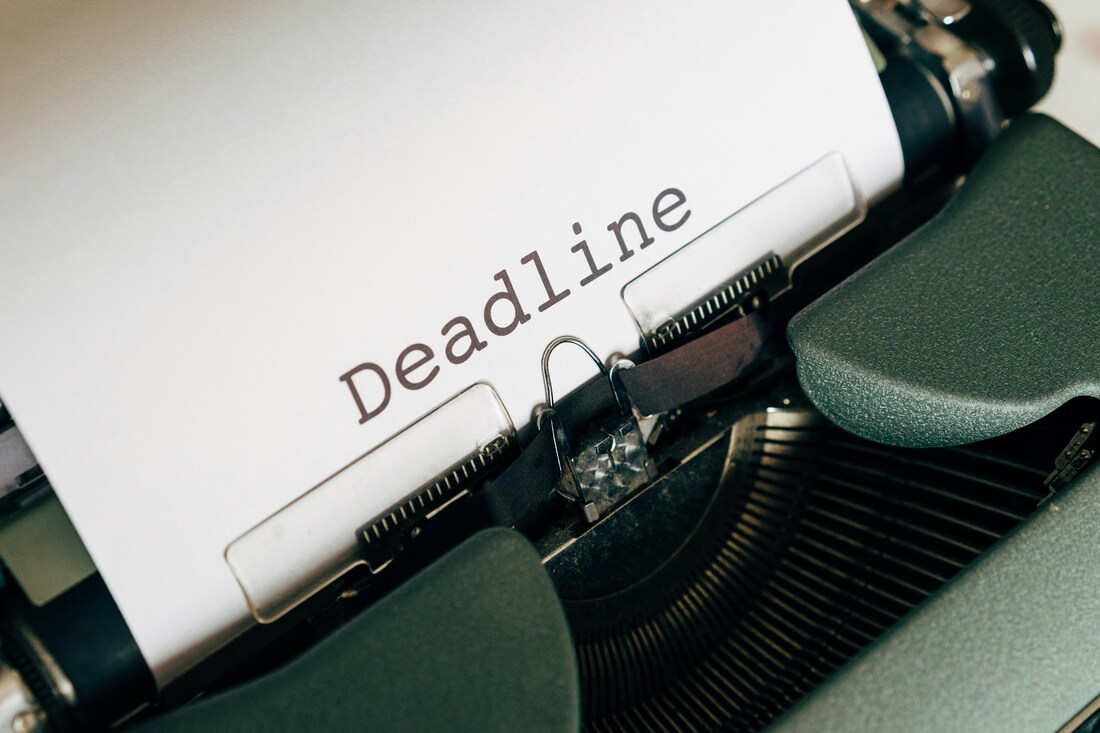|
Anisha takes a fantastical look at how to manage deadlines. As the term trudges on into March, increasing the promise of sun, those fluttering pages of essay plans and to-do lists can seem to restlessly grow wings in their want to disappear into the sky. In this blog, I´ll run through three simple ways of getting grounded to secure those deadlines. 1. Avoid the White Rabbit The last thing you want to be doing is dashing around in an essay frenzy, spilling citations out of your tea and dropping crumbs of ideas muttering “I´m late, I´m late,” for a “very important essay date". Time management is absolutely key when it comes to handing in assignments. You can order what you have to do in terms of date and difficulty (i.e: estimating how much work you’ll have to put in). Sometimes, setting fake deadlines can help kick-in some of that lovely last-minute-essay-adrenaline. Depending on how much you trust yourself, schedules can be a lifesaver. I like to use visual calendars to mark when I have things due, so I can see in front of me how much time is left. Holding yourself accountable through mini deadlines or linking up with a friend who is working around a similar schedule can also be useful. Having said all this, not all good ideas are generated under the pressure of a tick-tocking clock, and constant reminders of time passing can lead to high levels of counterproductive stress. If this is the case, be sure to leave enough time to ensure you can take a step back and approach the assignment at your own pace… 2. Embrace the Unknown When you’re faced with the massive monster that is a blank page, it’s normal to instinctively get overwhelmed. There are so many possibilities that an unstarted assignment brings, especially with humanities subjects. Get curious with the approaches you can take, and, to bounce back into the Alice in Wonderland metaphor, spiral down the rabbit hole. Most of my ideas for essays spring when I’m not consciously intending to squeeze out an idea. They come through exposure of material around a subject, such as podcasts or random articles. Give yourself the space to explore topics that aren’t always directly linked to what you are meant to be writing about. Often, as long as you leave enough time to pursue the natural wonder of your interests connected to the subject matter, you’ll end up enjoying the assignment a lot more. Having fun with digging into the more niche and hidden parts of a topic is a win-win, not only will it spur you into undiscovered territories of what you enjoy, but it will also give your essay an edge that makes it enjoyable to the reader. 3. Face your Demons A wise man once said, to get to a deadline, one must first start (the wise man being me). It can be easy to get sucked into the trap of planning as a form of procrastination. This is because we’re wanting so much for perfection to be placed straight onto the empty doc. No matter how much planning you put into it, there must eventually be an assignment at the end you can deem as ‘finished’. Get whatever you deem important into the body of the text first, and remember to not overlook the process of editing. Techniques such as the Pomodoro Method are often useful for this, setting a thirty minute timer and then a short five minute break, as it makes the deadline a little less intimidating. Having a routine around assignment time can help create a more focused and healthy environment and attitude - little things such as weaning off social media, spending more conscious time on the hobbies that make you happy, and doing some stretching or breathing exercises allows for a more balanced and slightly less stressful environment. The names of these tips have unconsciously slid into the realm of fantasy… so what else to say, but to go slay that dragon of a deadline! Read of the Month Sister Outsider by Audre Lorde An accessible and punchy collection of short essays by the radical Audre Lorde, which opens up how her identity as a queer, black woman in America acts as a source for power, revolution and resistance. Unpicking deep rooted oppression, this book empowers the individual and the marginalised in its surge- and search- for solidarity. AuthorAnisha Minocha is studying English and Spanish at the University of St Andrews, currently living in Andalucía. She is a writer and poet whose work has been showcased in winning competitions, readings and anthologies. She co-edits SINK Magazine, which gives a platform to Northern creatives, and founded the "Roots"" project with Friends of the Earth that looks at the intersections between South Asian identity and ecology. Twitter: @anisha_jaya
0 Comments
Your comment will be posted after it is approved.
Leave a Reply. |
This section will not be visible in live published website. Below are your current settings: Current Number Of Columns are = 1 Expand Posts Area = Gap/Space Between Posts = 15px Blog Post Style = card Use of custom card colors instead of default colors = Blog Post Card Background Color = current color Blog Post Card Shadow Color = current color Blog Post Card Border Color = current color Publish the website and visit your blog page to see the results Categories
All
We're always interested to hear from talented young writers, so if you'd like to feature as a guest author then hit us up for more details.
|
Student blog: What's new?
Author
Write something about yourself. No need to be fancy, just an overview.
This website uses marketing and tracking technologies. Opting out of this will opt you out of all cookies, except for those needed to run the website. Note that some products may not work as well without tracking cookies.
Opt Out of Cookies

 RSS Feed
RSS Feed